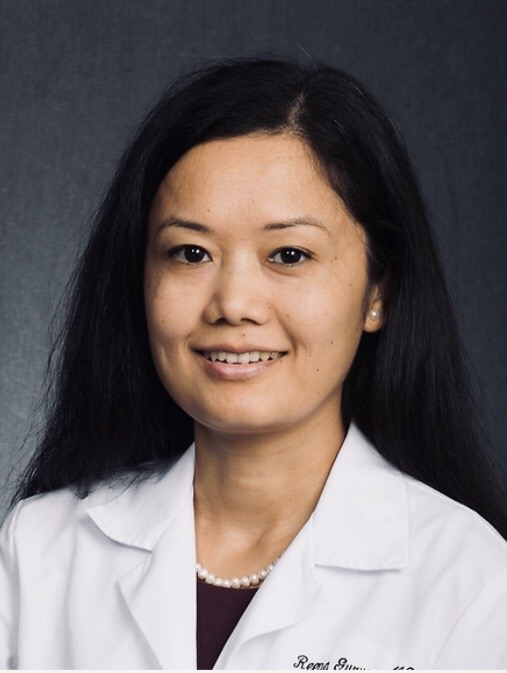
Reena Gurung, MD 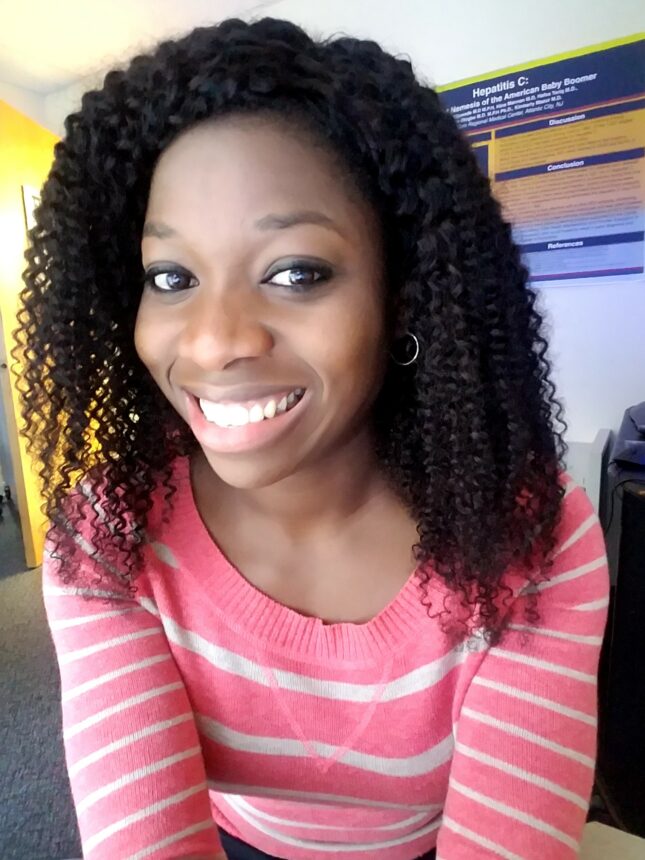
Blessing Osondu, MD 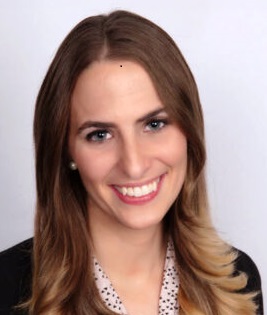
Maggie Meier, MD 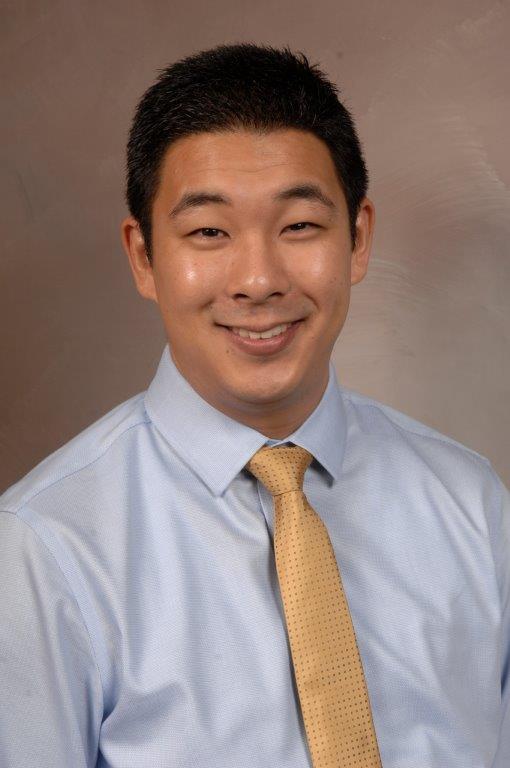
Gonzalo Matzumura, MD 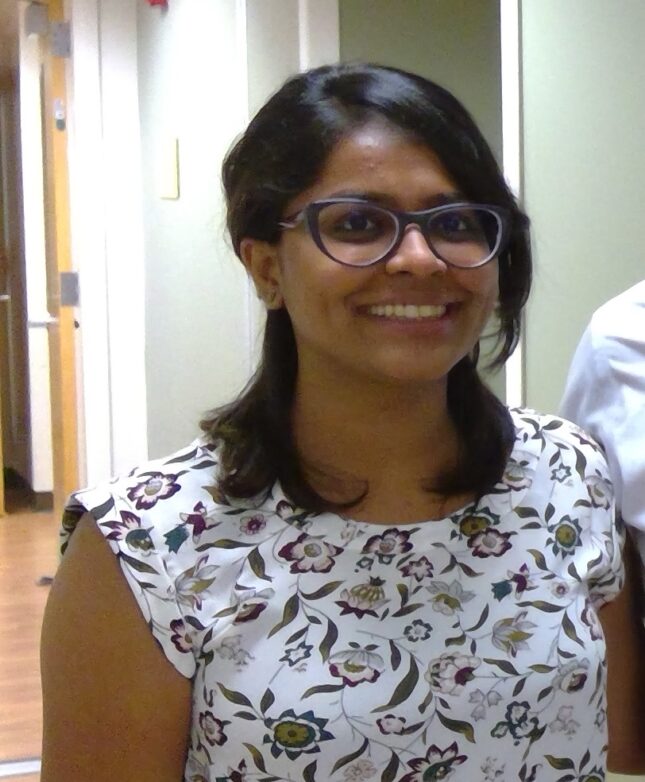
Sana Javeed Shaikh, MD
It’s been an eventful year of learning, hard work, and battling the COVID-19 pandemic. As new fellows are welcomed into the WashU Nephrology training program, two of our second-year fellows – Drs. Gonzalo Matzumura and Sana Javeed Shaikh – reflect on their time here in the division and in St. Louis.
Gonzalo, born and raised in Lima, Peru, completed medical school there and then moved to Houston for a residency in internal medicine. “It was there that I met the wonderful people who ‘lured’ me into nephrology, and I ended up at WashU for my nephrology fellowship.”
Sana earned her medical degree in Pune, India, and completed a residency at SSM St. Mary’s Hospital in St. Louis. As a visiting resident at WashU Nephrology, Sana completed a four-week rotation through our inpatient General Nephrology service and inpatient Renal Transplant service. She subsequently decided to enter our nephrology fellowship.
Looking Back on Year One – Expectations
Gonzalo: “I think the fellowship has lived up to the expectation of being quite busy. What I didn’t expect were all of the opportunities I would have to develop different aspects of my career. I’ve been fortunate to be able to work on different research projects, help write a review article, participate in teaching sessions with medical students, and be involved with the Latino Medical Student Association at WashU. And these are just a few of the fantastic experiences I’ve been lucky enough to have during my first year of fellowship!”
Sana: “Having spent time with the nephrology service at WashU as a second-year medicine resident, I pretty much knew what I was signing up for. It undoubtedly met my educational and academic expectations, and I had a great first year. The one thing that took me by surprise is how humongous Barnes Jewish Hospital is, and how that translated to the number of steps I would be getting in every day!”
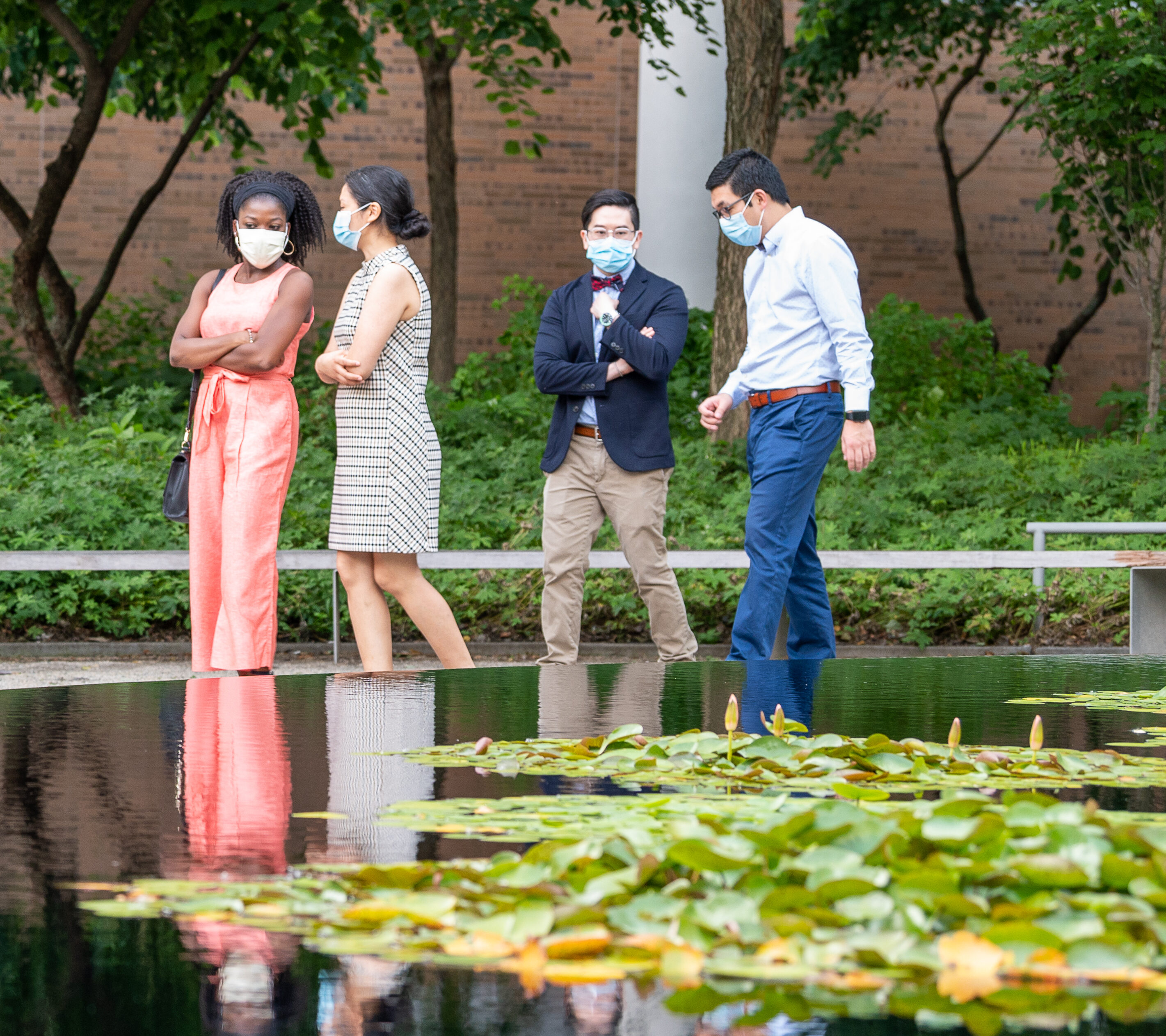
A Sense of Camaraderie
Gonzalo: “The fellowship has made us closer and tighter as a class. We look out and help each other all the time. We enjoy spending time together, both inside and outside of the hospital, and the fact that we get along very well means that even on challenging days we are able to get through because of that support system. We rejoice and celebrate each of our accomplishments, both personal and professional.”
Sana: “Compared to other fellowship programs, WashU Nephrology is relatively large. Our structure definitely increases the probability of hanging out with colleagues outside of work because not everybody is working at the same time. I personally used to enjoy the pre-COVID end-of-service lunch on Fridays with the on-service fellows and attendings.”
photo: Charbel Khoury, MD
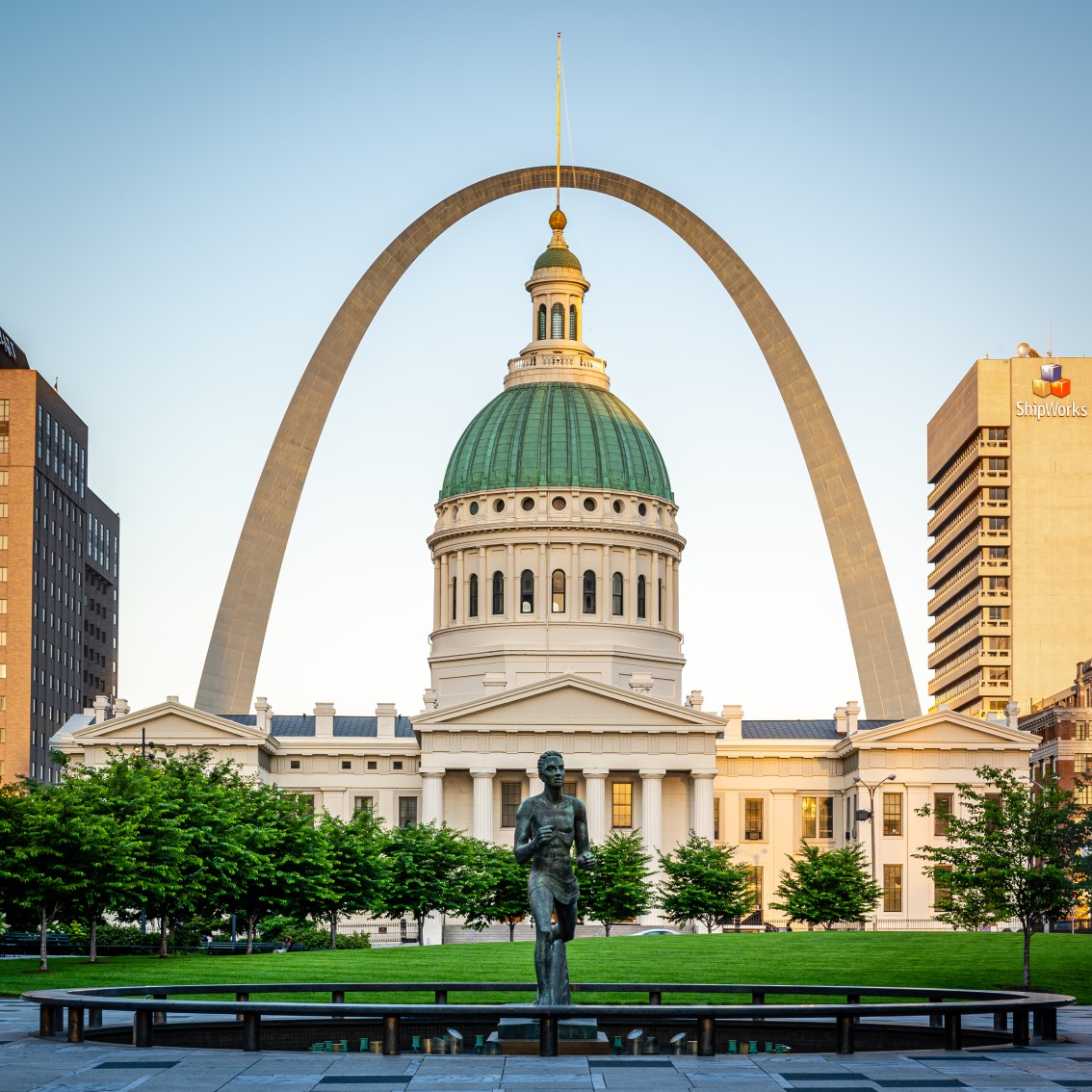
Living in St. Louis
Gonzalo: “Before moving to St. Louis I didn’t know what to expect, but I have really enjoyed the city. Getting around the city is easy, and there’s a lot to do. I love going to the Cardinals and Blues games, exploring the outdoors around the Missouri River and running in Forest Park.”
Sana: “I think St. Louis is a trainee-friendly city. There is not much work-hour traffic and rent is relatively inexpensive. House staff salary can get you a lot out here! I also love living close to Forest Park – the biking trails are nice.”
photo: Charbel Khoury, MD
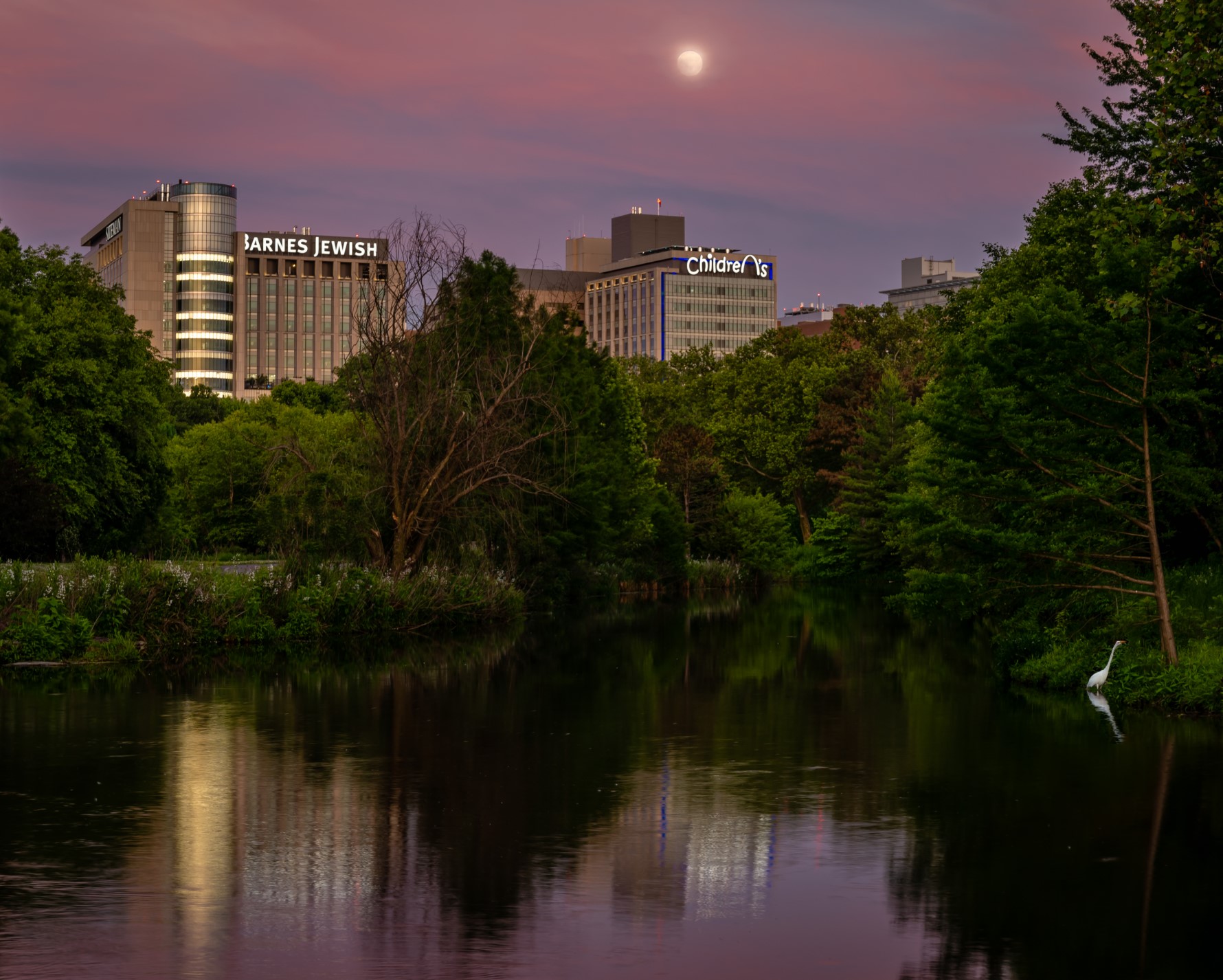
Working at WashU
Gonzalo: “There is a collegial environment at WashU, both within the Nephrology division and with other specialties. No matter how highly regarded or expert the other party involved is, interactions are always down-to earth, respectful, and most of the times highly educational!”
Sana: “I thoroughly enjoy our 1pm on-service rounds where everybody on service sits together to talk about interesting and challenging cases on their list. It is fascinating to see how different attendings will approach the same topic.”
photo: Charbel Khoury, MD
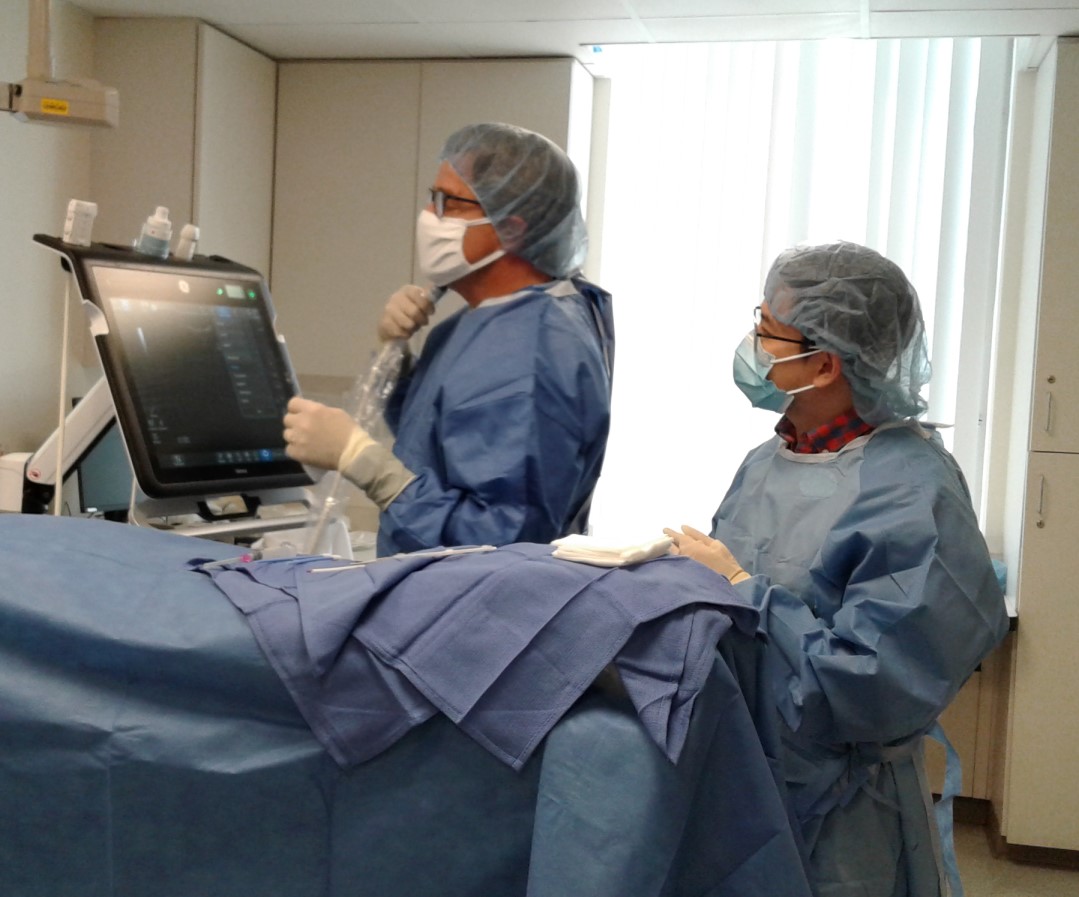
Off-service Time
Gonzalo: “We have a lot of flexibility about how we use our off-service time. We have the opportunity to work on our research projects, participate in subspecialty clinics (glomerulonephritis, stones, PKD, pre and post-transplant), elective rotations like interventional nephrology or even other specialties like critical care or pediatric nephrology. We have significant time to really work and tailor our training to our career path.”
Sana: “Since we are a front-loaded program, our second year offers a lot of off-service time, and we have the option of scheduling our electives as we like. So far, I have used my time to attend specialty clinics and complete data collection for my research project.”
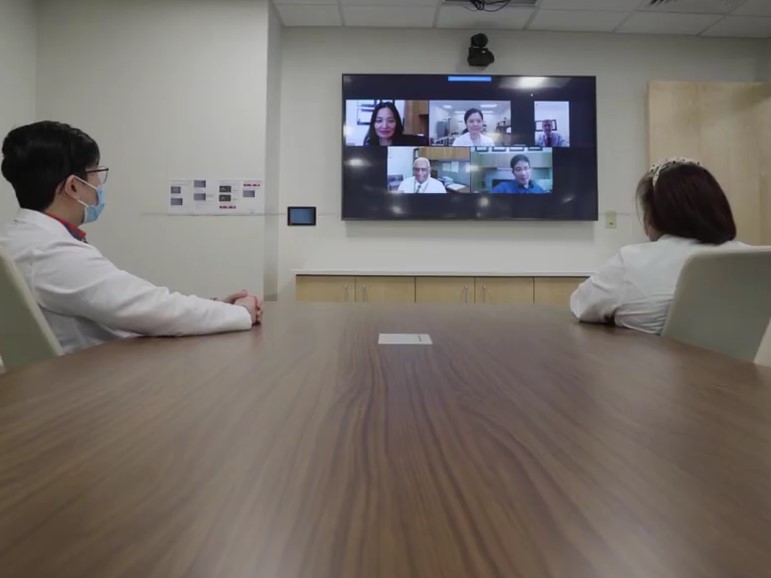
Life During the COVID-19 Pandemic
Gonzalo: “It has definitely changed the way we do things, but it has been a very productive learning experience and I think we have made the best of it. The program was very supportive in protecting us trainees when the pandemic started by implementing an attending-only service for COVID-19 patients. They were very open with constant communication and checking in with us to make sure we were all doing ok. We transitioned to virtual video conferences but continued having weekly case conferences and lectures. We also continued reviewing renal pathology slides via video conference with our pathologists. We were even able to participate in research projects and produce publications related to COVID-19.”
Sana: “Our division went the extra mile in shielding us from exposure to COVID-positive patients. We were fortunate to have enough PPE to feel safe at work. Although we had a brief standstill with conferences, we soon transitioned to virtual lectures. Having a virtual platform has given us the opportunity to attend more lectures, even across divisions. Early on I wondered if we would miss out on seeing non-COVID patients, but we continue to see a wide variety of nephrology cases.”

Why Choose a Fellowship in Nephrology?
Gonzalo: “I think that it is a great time to be in nephrology. There is a vibrant nephrology community, with many resources readily available to all via social media and a big movement towards making nephrology more approachable to trainees. At the same time, many of the areas in nephrology that had been stagnant for years are gaining momentum and making great strides in innovation. Today more than ever, there is much to do to move the field of nephrology forward.”
Sana: “Nephrology is an obvious extension of medicine, and as long as you keep up with the science it will always amaze you. It helps to be at a place that has faculty members who are leaders in their field, have diverse interests, and have the time to push you to do better. From a non-academic standpoint, I love the concept of night float. I think it is a huge incentive.”
Advice to the Incoming Fellows
Gonzalo: “Work hard, ask a lot of questions and try to learn as much as possible during the first year. The more you do, the more proficient you will become at it. Before you know it you will be done with year one and you will look fondly at how much you have grown and learned.”
Sana: “A little reading every day goes a long way!”
Follow Gonzalo @GMatzumura and Sana @always_oncall on Twitter, and read more about our 2019-2021 fellows here.